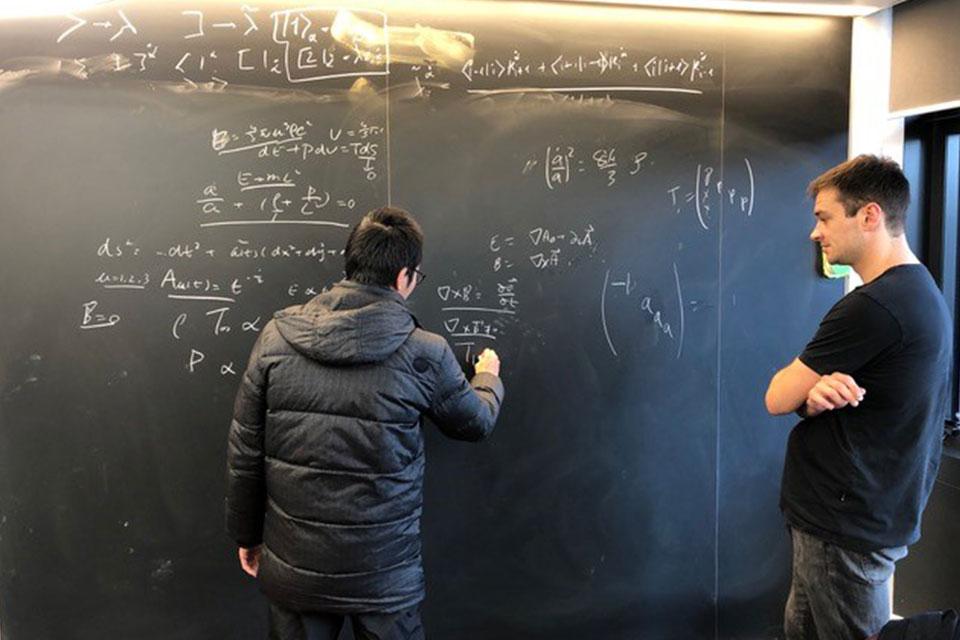The Science and Technology Facilities Council (STFC) announced this week that they have awarded more than £20 million for UK theoretical physics. The investment will benefit the Particle Theory group in the Department of Physics as well as the Mathematical Physics group in the Mathematical Institute.
Nationally, the funding covers research in five key areas in theoretical physics: cosmology – the theory used to try to describe the earliest moments of the Universe and how the Universe evolved; lattice field theory – for understanding the consequences of theories with strong interactions; phenomenology – the study of elementary building blocks of all matter in the Universe and the fundamental forces that operate between them; quantum field theory – a theoretical framework that combines different principles to explain the behaviours of subatomic particles and their interactions; and string theory – the study of how particles interact, supposing that particles are not ‘points’ but more like one-dimensional strings.
For Oxford, the grant will support work to better understand the fundamental forces of the Universe and the mathematical theories that underlie them, helping to guide the search for new particles and forces, including dark matter, and the study of the Higgs boson and its interactions. Some 16 academics will be working jointly across the Department of Physics and the Mathematical Institute and the grant will notably support six postdoctoral fellowships. The funding will also be used on complementary high-memory computing facilities, essential to addressing some of today’s most challenging puzzles and problems in fundamental physics.
‘It is obviously fantastic to receive this funding for our work from STFC,’ comments Professor Salam, ‘but, more importantly, it is great to see this level of national investment in theoretical physics. Theoretical work is an essential complement to the wide-ranging experimental programme of the STFC and the funding is especially important in offering exciting opportunities and horizons to the next generation of theoretical physicists’.

